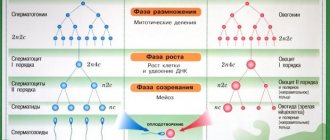Applied psychology is often confused with practical psychology, but these are separate branches of science. When defining what applied psychology is, psychologists distinguish between the concepts of application of methods and implementation of methods. Applied psychology deals with the implementation and popularization of scientific achievements, an experimental approach to social spheres, mainly working with theoretical data. The practical one uses a complex of everyday and scientific approaches and is aimed at working with clients of any social group.
Features of applied psychology
In applied psychology of the 21st century there are three branches:
- Test diagnostics. Diagnostics, as a research method, originated in 1884. F. Galton, the creator of the method, organized the measurement of physiological parameters of volunteers by passing a series of measurements - tests.
- Psychology of work. Studies of working conditions began in the 20th century, in light industrial factories. Leading researchers were E. Claparède, G. Hall, G. Munstenberg.
- Clinical psychology. Originated at the beginning of the 20th century. The scientific basis for the new industry was developed by L. Witmer and E. Kraepelin.
The application of this section of social sciences is diverse: solving diverse problems, improving approaches to the development of individual spheres of human activity. Typical tasks include:
- diagnostics using tests;
- studying the needs of social groups;
- counseling, therapy;
- forecasting options for the development of society;
- development of reforms and social projects.
Forms of application of the industry include interpretation and intervention. The first deals with the analysis and characterization of factors, the second reveals the characteristics of psychological behavior, from education to direct assistance.
Books on practical psychology
The topic of practical psychology is extremely broad, so if you want to study it further, check out the books on this list.
- “How to treat yourself and people, or Practical psychology for every day” Nikolai Kozlov.
- “It's in your power. How to Become Your Own Therapist by Jeanette Rainwater.
- “A book for those who like to live, or Psychology of personal growth” Nikolai Kozlov.
- "On the limit. A week without self-pity" Eric Bertrand Larssen.
- “Psychology about personality” Alexey Bodalev.
- “Games that successful people don’t play. Master class in practical psychology” Pia Bylund, Kåre Christiansen.
- “Workbook of a practical psychologist: a manual for specialists working with personnel” Alexey Bodalev.
- “Practical consulting” Galina Kolesnikova.
- “The Gift of Psychotherapy” by Irvin Yalom.
- “Textbook of Systemic Therapy and Counseling” by Arist von Schlippe.
- "The Book of Self-Power" by Tony Robbins.
- From Frogs to Princes by Richard Bandler and John Grinder.
We wish you good luck!
Did you like the article? Join our communities on social networks or our Telegram channel and don’t miss the release of new useful materials: TelegramVKontakteFacebook
We also recommend reading:
- Storytelling
- Where to start studying psychology
- Criminal psychology
- Differential psychology
- Psycholinguistics as a tool for in-depth study of speech and language
- Educational Psychology
- Social technologies
- Cognitive psychology and cognitive psychotherapy
- Psychology of Advertising
- Wundt's method of studying psychology
- Crisis psychology
Key words:1Self-knowledge
Sections of science
The definition of a scientific field includes three related fields:
- Clinical. She studies disorders: the history of development, forms and types of diseases, diagnostic and therapeutic methods, and preventive measures.
- Organizational. Explores the professional characteristics of individual fields: medical, military, engineering, production.
- Social. Studies the field of advertising and media. Affects the economy, leisure, ecology, culture.
The sections are closely intertwined and use the same information base, but their development is uneven.
Psychology as a fundamental science.
What is basic science? This is a classic university education.
The key word here is fundamental. Every fundamental science is aimed at identifying the essential foundations of the phenomena it studies. Science strives to comprehend the essential foundations of the phenomena it studies. Any science encounters phenomena, it encounters observable phenomena, but cannot be content with describing and classifying these phenomena; it is important for it to explain these phenomena. And to explain them, you need to know what underlies them. Science studies what entities appear to us in a variety of ways in the form of various phenomena. It is these essences that any fundamental science is looking for, and psychology is no exception.
When these entities are discovered, they are formulated in the form of laws or regularities of a given science.
What methods are used in fundamental psychology? Fundamental psychology uses three main categories of methods.
- Theoretical methods of knowledge . Only theoretical methods make it possible to reveal the essence of the phenomena being studied. The essence of a phenomenon is a certain idea, a principle underlying a given phenomenon, and this principle can only be comprehended theoretically.
- Empirical methods . Empirical means experienced. These are also indispensable methods that allow us to discover new phenomena, explore, describe, classify, but not explain them. Theoretical methods allow explanations. Psychology has a very large arsenal in the field of empirical methods of cognition:
- Observation first;
- conversation is also a very important empirical method of psychology. Conversation is used almost always in psychology;
- life history analysis. It is also called anamnesis. Psychoanalysis firstly very often uses the analysis of life history. In psychoanalysis, the roots of problems are most often discovered at one stage or another in a person’s life history, and many problems begin in childhood;
- analysis of activity products;
- text activity analysis;
- visual activity – drawing methods of psychological diagnostics;
- methods of psychodiagnostics. Identification of individual psychological characteristics;
- The main method since the end of the 19th century, which was introduced by Wilhelm Wundt , has been the method of experiment. This method has become the main one only because it allows one to identify cause-and-effect relationships between phenomena. No other method allows this. An experiment allows us to explain cause-and-effect relationships between phenomena.
- Methods for analyzing the obtained data. This includes two groups of methods:
- Methods of quantitative data analysis. Quantitative methods are based on mathematics and are basically different methods of mathematical statistics;
- methods of qualitative data analysis. Qualitative methods are primarily interpretative. It is important for a psychologist to understand and decide what this or that phenomenon is an expression of. Psychoanalysis uses only qualitative methods of analysis.
Application organization
The organizational design of labor complexes is expressed in the following provisions:
- Design is the basis of management. The key to the existence and development of a company is a project - a combination of ways to achieve a goal, methods for solving management problems, and means of labor optimization.
- A project includes a goal. A goal is understood as a given general view of a developed company or a series of actions that should lead to its achievement.
- Design is implemented jointly. For the correct implementation of the project, it is necessary to include all management segments at different levels. The more efficiently the subjects at lower levels work, the higher the overall performance.
- Among the projects, typical ones stand out. These include projects that are implemented in various fields of activity. First of all, these are projects aimed at improving social working conditions, realizing staff capabilities, and meeting needs. In the 20th century, the priority of design was technical capabilities; modern science is engaged in adapting a technical system to a social one.
The basis of the project management scheme is the type of subordinate. D. McGregor identifies two leading types: X and Y.
Type X subordinate needs constant external supervision from the manager. He does not show initiative, is devoid of ambition and ambition. He works not because he strives for self-realization, but in order to avoid sanctions (fines and dismissal) and receive a reward (bonus). Therefore, the manager’s task is to direct and control the work process.
The Type U subordinate sees work as an opportunity for creative and personal fulfillment. He is ready to work independently, be creative, and strives to solve complex problems. Interest in the results of work does not allow him to work irresponsibly. The main task of a manager is to create an opportunity for his subordinate to realize his creative potential.
In Japan, which is focused on corporate work, there is a third type of subordinate - Kommersant. It is based on the high loyalty of employees to the company. Workers of this type tend to perceive work as the only and necessary opportunity for self-realization. Working for the benefit of society becomes the highest value for them, and being an employee of a certain company becomes a source of pride.
Where to start studying practical psychology?
If you do not take into account the obvious advice “go to university,” it turns out that this is a rather complex question.
Professional practicing psychologists are very critical of popular psychological literature, calling it “pop psychology,” which sounds rather pejorative. And it goes not only to real experts on the true purpose of women or specialists in the psychology of relationships, but also to famous authors such as Dale Carnegie, Eric Berne, John Gray.
But if you don’t have 5-6 years to get a higher education in this field, but want to study practical psychology for the purpose of self-help, then you need to read a lot, and not just academic textbooks. For what?
Tony Robbins, in his book “Awaken the Giant Within,” wrote that before he started helping people, he read about 500 books on psychology. He read and immediately applied the theory into practice. Robbins recommends NLP because this field provides a huge number of correction techniques. Believe it or not? It's up to you, but Robbins has a huge number of admirers around the world, whom he, in their own words, helped, so at least his work is of interest.
Therefore, there is only one main piece of advice - read as much as possible, but always check all the recommendations you find in books, submit the information to critical analysis, and compare it.
You can find your own path. Consider that many great motivators, people who influence the lives of thousands of others, are actually self-taught. They chose their path, read and studied chaotically, and this ultimately created their unique personalities with original ideas. This way, of course, you will not gain academic knowledge, but it all depends on the initial goals with which you start studying.
The same applies to those who want to get a higher education - do not limit yourself to textbooks according to the program, study new things, because this is a very dynamic area in which amazing discoveries are made almost every day.
At the same time, ask yourself the following questions once a week to help you stay on track:
- What do I really want to achieve by studying psychology?
- How will studying it affect me and my environment?
- How will my life change when I have the necessary knowledge?
- Is this really a goal for which I am willing to spend part of my precious life?
Don't become a theorist in the worst sense of the word. Throw the techniques you’ve learned into battle, testing their effectiveness. But there is another caveat associated with this: some techniques are too complex for an untrained person. Therefore, before you do anything, think carefully about whether you are ready, about the consequences and risks. Don't rush headlong into the pool by following the first and most popular advice to go beyond your comfort zone.
Development of science
A study of the ways of development of science shows that among the forms of applied psychology, clinical psychology receives the greatest development. In the 21st century, according to US and European studies, more than 40% of specialists are engaged in the clinical sector. The second most popular area of activity is private consulting. Its pace of development suggests an imminent change in leadership positions and the introduction of private psychology into everyday practice.
Such indicators are associated with the relevance of requests - the psychological field of activity has become in demand under the influence of social changes. This is partly due to the political course aimed at meeting the individual needs of members of society, but to a greater extent - with the dissemination of information, and the subsequent increase in self-requests.
Political Law School Family Psychology
The introduction of practical psychology into the education system helped in posing and solving problems of transition from unified education to variable education, from pedagogy of “knowledge, abilities and skills” to pedagogy of development, in reorienting the teacher’s consciousness from school-centrism to child-centrism, in creating a culture of turning to psychologists as interdisciplinary specialists in educational institutions, in the development of therapeutic and compensatory programs for preschool, general, additional and primary vocational education.
Practical psychological service has proven its effectiveness in solving a wide range of problems: Designing a developmentally appropriate lifestyle for a person, creating a psychological portrait of a person, psychological assistance in working with a child’s family, psychological support in choosing a life and professional career, including the process of professional adaptation, as well as in identifying causes of deviations in personality development, prevention and elimination of such deviations. A practical psychologist contributes to the harmonization of the socio-psychological climate in educational institutions.









